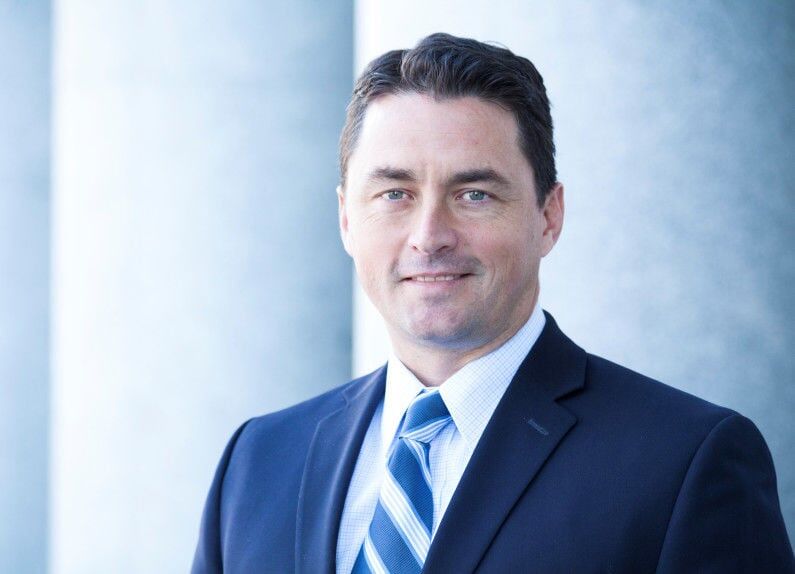Man in the middle: DPS lawsuit against Trump policy assigned to judge with higher aspirations
After Denver Public Schools sued the Trump administration on Wednesday seeking to overturn a new policy giving immigration authorities greater latitude to operate in schools, the case was assigned to the lone, first-term appointee of President Donald Trump on Colorado’s federal trial court.
U.S. District Court Judge Daniel D. Domenico has routinely handled challenges to governmental actions during his nearly six years on the bench. However, attorneys are acknowledging Domenico now appears to be in an uncomfortable spot, given his desire to be appointed to the Denver-based federal appeals court and the possibility that a vacancy will arise during Trump’s second term.
“I would hope that Judge Domenico and all other judges will apply the law faithfully, especially during this time where the Constitution and the rule of law are being so seriously undermined by the executive branch,” said Rep. Steven Woodrow, D-Denver, a lawyer who practices in Colorado’s federal court.
In recent days, members of the Trump administration have attacked judges who have enjoined various executive actions. Trump’s press secretary has called their injunctions “an abuse of the rule of law” and Vice President JD Vance has claimed judges “aren’t allowed to control the executive’s legitimate power.“
Last year, The Wall Street Journal and NPR also reported that Trump may prioritize candidates who would be loyal to him for judicial appointments in his second term.
“The DPS suit could place Judge Domenico in an awkward situation, but it also could be awkward for DPS to raise the issue by asking the judge to recuse,” said Carl Tobias, a University of Richmond law professor who monitors federal judicial nominations.
Colorado Politics previously reported about Domenico’s aspiration to sit on the U.S. Court of Appeals for the 10th Circuit — which Domenico publicly acknowledged during his nomination to the district court.
Around the time of Trump’s first inauguration in 2017, Domenico wrote in his U.S. Senate Judiciary Committee questionnaire that he spoke with Colorado’s then-Republican senator, Cory Gardner, about a possible nomination to the 10th Circuit. U.S. Supreme Court Justice Antonin Scalia had died the prior year and the Republican majority in the Senate blocked Barack Obama from appointing a successor before the end of his term. Neil M. Gorsuch, a 10th Circuit judge from Colorado, was Trump’s pick for the seat.
“After Judge Gorsuch was nominated for the U.S. Supreme Court, I reiterated my interest in the circuit court opening to Senator Gardner’s office” and the U.S. Department of Justice, Domenico wrote to the judiciary committee.
However, during a reception to celebrate Gorsuch’s swearing-in, Domenico spoke with officials from the White House Counsel’s Office. While he did not elaborate on the substance of the conversation, Domenico wrote that Gardner called him three days later to say the White House wanted to nominate Domenico for the district court, not the 10th Circuit.
Lawyers in Colorado view Domenico as a strong, if not leading, circuit candidate under a second Trump term. Judge Timothy M. Tymkovich of Colorado, a George W. Bush appointee who hired Domenico as one of his first clerks, is currently eligible to take a form of semi-retirement known as senior status.

Daniel Domenico.
Colorado Politics file

Daniel Domenico.
Jason R. Dunn, Trump’s first-term U.S. attorney for Colorado, said he was unconcerned about how Domenico may handle the DPS lawsuit even with the possibility of a circuit opportunity.
“I think (Domenico) is the kind of person who will do his job, apply the law and let the chips fall where they may on whatever future ambition he may have,” Dunn said. “If I were in his shoes, I would do my job. That’s what I signed up for.”
Russell Carparelli, a retired judge who served on the state’s Court of Appeals, said he trusted Domenico would render a fair decision in the DPS case. At the same time, he acknowledged commentators, public figures and others may seek to put pressure on a judge’s actions.
“President Trump’s insistence on loyalty to himself is well-known, as is his vilification of anyone who disagrees with or opposes him. This includes judges who have ruled against him or contrary to his preferences,” Carparelli said. “Whether or not President Trump intends to influence future decisions, the fact and forcefulness of his vilifications puts pressure on judges serving on cases that relate to the president’s preferences.”

Russell Carparelli, former judge on the Colorado Court of Appeals

Russell Carparelli, former judge on the Colorado Court of Appeals
The DPS lawsuit against U.S. Secretary of Homeland Security Kristi Noem seeks to strike down on procedural grounds a Jan. 20 memo giving immigration officers greater latitude to operate in areas previously meriting “special protection,” like schools. The district has alleged the arbitrary and capricious policy is causing it to divert resources toward addressing student and staff fear. Further, attendance has fallen off allegedly due to the policy change.
On Thursday, Domenico set a two-week schedule for the government and DPS to submit their arguments and evidence. He will then decide whether to hold a hearing or address the district’s request based on the submissions.
“I understand the general concern that district court judges may be trying to ingratiate themselves with the new administration in order to raise their profiles should appellate vacancies arise,” added Gabe Roth, director of the national advocacy group Fix the Court, “but I’m not willing to cast aspersions before the judge has heard a single case concerning Trump administration policy.”






